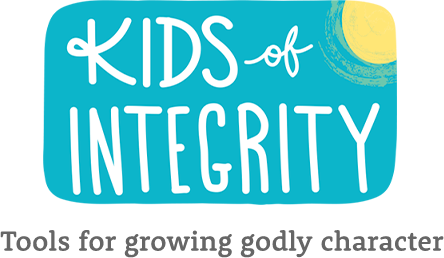Respect

Bible stories
This section provides Bible stories with the theme of respect, along with questions that can be used as a guide for family discussions. Choose one that is most appropriate for your children. Before reading aloud, take a few minutes to review the story. If the Bible passage is too complex for your kids, paraphrase the story yourself or use the summary provided under “key concepts.”
Making fun of others – Elisha is jeered
Read 2 Kings 2:23-25.
Questions for discussion
- How did the youths make fun of Elisha?
- What happened to them?
- Who are you tempted to tease?
- Do you think God likes it when we tease others?
Key concepts
The young people made fun of Elisha’s bald head and made fun of where he was going by saying, “Go on up, you bald head.” Obviously, God was not pleased with them as He sent two bears out of the woods to kill those who made fun of Elisha. God is not pleased when we tease or pick on others.
God is worthy of our best
Read 1 Chronicles 29:10-16 and Malachi 1:6-14.
Questions for discussion
- How would you feel if someone gave you a dirty, beat-up old toy for your birthday? Would you feel even worse if you knew they had kept the new toy for themselves?
- How do you show respect and honour for a friend on their birthday?
- How can you show respect and honour to your parents?
- Why is God worthy of our respect?
- How can you show respect and honour for God?
- How did the priests dishonour and disrespect God?
- How did God respond to this dishonour?
- How do you think God feels when you don’t respect people or the others things He has made?
- How do you think your parents feel when you don’t take care of your toys?
Key concepts
God is worthy of our respect because He created the heavens and the earth and all that is in them, including us! He is more awesome and powerful and greater than any other being. He has provided us with everything that we have (e.g. house, clothing, food, friends, family, etc.). Without God, none of us would be alive. In Him we live and move and have our being (Acts 17:24-28).
One of the ways we can show respect and honour for God is by verbally acknowledging who He is as David did in 1 Chronicles 29:10-16. Another way to honour God is by giving Him our best. “Our best” may mean dressing carefully for church. It means offering God the first part of our allowance called a “tithe.” When we honour God, it means we give Him our full attention, focusing on Him instead of other things during worship.
When we refer to ourselves as Christians, we are calling ourselves by “Christ’s name.” We honour his name when we treat others, as God wants us to, with love, respect and consideration. We can dishonour God by fooling around in church, thinking of other things during worship, honouring other things more than we honour God and by keeping all of our allowance for ourselves. We also dishonour God when we say that we love Him and then turn around and treat others with disrespect.
In conclusion, take time to pray with your children, asking God to help all of your family members behave in a way that honours God and shows respect to each other.
Respecting authority
Read Ephesians 6:5-9, 1 Thessalonians 5:12 and Romans 13:1.
Questions for discussion
- What is “authority”?
- Who is in authority over you?
- How can you show that you respect these authorities?
- Why should you obey those in authority? (Ephesians 6:5-6)
- How are you to serve? (Ephesians 6:7)
- Who is in authority at church?
- How can you show respect to these individuals?
Key concepts
Authority, by definition, is the power or right to enforce obedience (Canadian Oxford Dictionary). Most children have parents, teachers, babysitters, grandparents, police, government, pastors, Sunday school teachers as authorities in their lives. Technically, children are not slaves, but the slaves and earthly masters concept can apply to a situation where any of us are put in a position where we must obey someone.
Ultimately, God is the authority in all of our lives. God asks us to obey all the earthly authorities He puts over us (Romans 13:1). We can show respect for authority figures by obeying their instructions, being polite, looking at them when we talk to them and by encouraging them with kind words.
Hezekiah’s prayer
Read Isaiah 36-37.
Take note of the key verses in Isaiah 36:11-20 as they illustrate the mocking and disrespect shown for God and the Israelites by the Assyrians. In Isaiah 37:14-20, we read that Hezekiah responds by praying. In Isaiah 37:36-37, the Bible tells how God answered Hezekiah’s prayer.
Questions for discussion
- Who mocked God?
- What did Hezekiah do when he heard the mocking?
- What did he tell the people to do?
- What did God do to let Sennarcheib know that He was worthy of his respect?
- What should you do when people mock you?
Key concepts
The king of Assyria, Sennacherib, was a very powerful king. He had defeated many of the nations surrounding Jerusalem where Hezekiah, king of the Israelites was. Sennacherib sent his men to mock Hezekiah and God, intending to turn the Israelite people against Hezekiah and God. Hezekiah could have gotten angry and yelled disrespectful things back at Sennacherib’s men. Instead, he asked his people to remain silent. Hezekiah went to God and prayed. Because Hezekiah prayed, God chose to deliver the Israelites by sending an angel to fight for them – killing 185,000 of Sennarcherib’s men during the night. It doesn’t pay to mock God.
There are two lessons to learn from this story. One is that when others treat us with disrespect, we should remain silent and take our concerns to God instead of arguing and taunting back. The other lesson is that God is worthy of our respect and there are severe consequences for disrespecting God.
Treat the Lord your God with utmost respect
Read Daniel 5, and 1 Samuel 2:30.
Questions for discussion
- How would we feel if someone came into our house and took our best dishes and then went to their own house and had a party using them?
- How would you feel if someone took a special toy from you and allowed all of his or her friends to play with it?
- Whose cups did King Belshazzar use at his party?
- Who did they praise while they were drinking from them?
- What would you think if you saw a hand come and write on our wall? Would you be frightened?
- Who did they get to interpret the writing?
- What did Daniel tell Belshazzar that he did wrong?
- What did God do to Belshazzar that very night?
- Who did Daniel say is worthy of praise?
- What does God say about those who honour Him? (1 Samuel 2:30)
Key concepts
King Belshazzar was blatantly disrespectful of God. He used the gold goblets his father, King Nebuchadnezzer, took from God’s temple in Jerusalem. Not only did he drink from them, he had a party in honour of other gods while he was drinking wine from them. God was so displeased, He wrote on the wall of the place where they were partying. God revealed to Daniel what the words He wrote meant. Daniel told Belshazzar that he had praised other gods, but did not honour the God who held his life in His hand (Daniel 5:23). Belshazzar was killed that night. Disrespecting God is dangerous business.
Disrespect is smelly business
Read 1 Chronicles 19.
Questions for discussion
- Has anyone ever made you feel humiliated?
- Have you ever felt as though someone treated you with disrespect?
- Have you ever tried to do something nice to someone who in turn rejected your kindness?
- How would you feel if you offered someone your last candy and they tossed it on the ground and mashed it under their shoe?
- What did David do to show sympathy to Hanun?
- How did Hanun treat David’s men disrespectfully?
- What do you think is the meaning of these words: “…they had become a stench in David’s nostrils”?
- What was the end result of Hanun’s treatment of David’s men?
- Do you seek out friends who treat you well or treat you poorly?
- Do you treat others in a way that would cause them to want to be friends or enemies?
Key concepts
David and Nahash were both kings. They were friends with each other. After Nahash died, his son, Hanun became the king of the Ammonites. Because Nahash had shown kindness to David, David sent a “sympathy” party to Hanun. Hanun rejected David’s friendly gesture and treated his men with utter disrespect. The end result was that Hanun made an enemy out of a man who had been friends with his father – to the point that Hanun had to hire another army to help protect his kingdom from David. In the following chapter, 1 Chronicles 20:2, we read of David’s men completely destroying the land of the Ammonites. This story shows us that treating others with disrespect can cause us to lose friends.
- Acceptance
- Adaptability
- Attentiveness
- Christmas
- Compassion
- Confidence
- Consideration
- Contentedness
- Cooperation
- Courage
- Courtesy
- Discernment
- Easter
- Faithfulness
- Forgiveness
- Generosity
- Gentleness
- Gratitude
- Harmony
- Honesty
- Humility
- Joy
- Kindness
- Obedience
- Patience
- Perseverance
- Respect
- Responsibility
- Reverence
- Righteousness
- Self-control
- Thanksgiving

